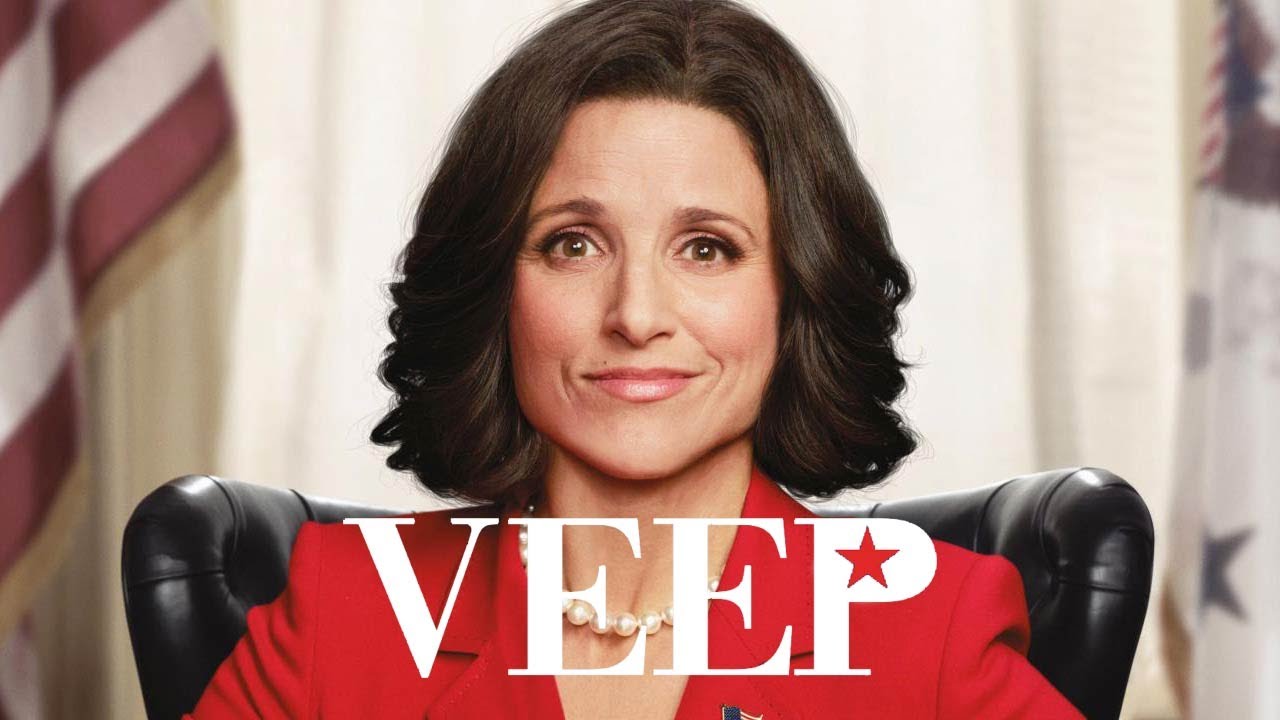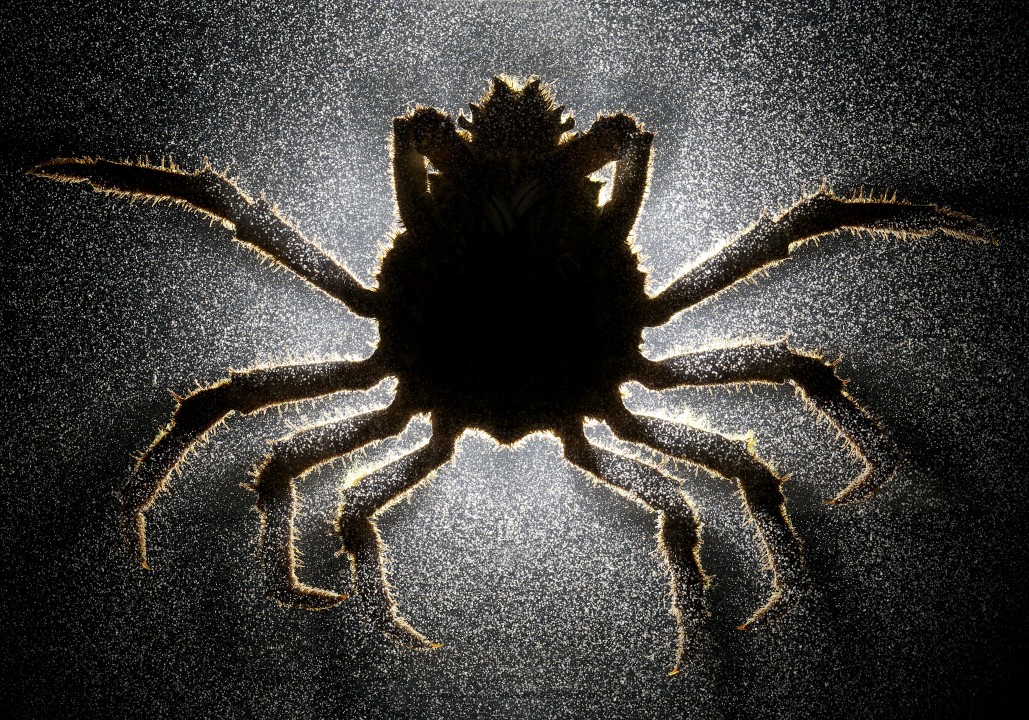
David Rothkopf says that HBO’s Veep is the best show about Washington, D.C., on air. Rothkopf is the CEO and Editor of FP Group (which publishes Foreign Policy Magazine), and will speak in the opening session of TED2015.
With days to go until TED2015, our speakers are putting the final touches on their talks. But that’s hardly all they’ve been up to. Check out which speaker is investing $52 million in cutting-edge vaccine technology, which speaker will have a Ken Burns moment at the end of the month, and which speaker created a fashion show inspired by Agatha Christie. Do not worry —no talk spoilers here.
Kevin Rudd sat down for an interview with The Diplomat at the end of February, sharing some thoughts on why China is so often misunderstood. One tidbit he drops: did you know that one-fifth of all UN peacekeepers in the world come from China? He’ll share much more in his TED Talk.
What’s the best TV show about Washington, D.C.? David Rothkopf has graded 10 in Foreign Policy magazine. His winner: HBO’s Veep. “Veep is a comedy … driven forward in each episode by the buffoonery and the egos and the unbridled ambitions of its characters,” he writes. “It captures the reality of life in the nation’s capital better than any of the other shows.”
Joseph DeSimone’s lab published a paper last month in the journal Science Translational Medicine about their new technique for treating tumors. The approach? 3D printing a device in the operating room that can push chemotherapy drugs directly to the problem area.
When reports surfaced about a gynecologist in Germany training blind women to give breast exams, Daniel Kish — who is blind and uses a form of echolocation to navigate the world — responded in The Guardian. He writes, “It certainly isn’t the first time that employers have taken advantage of our supposed special skills. The belief that blind folk have a better sense of touch once led to photography outfits such as Kodak employing us in darkrooms.” But, he warns, it shouldn’t be assumed that blind people have super senses. He shares his own experience to refute the idea.
Many people assume that Blackberry is out. So when Jim Simons — mathematician, code breaker and hedge fund manager — bought 3.3 million shares in the company in late February, it rippled through the news. Many are curious to know what he sees.
Alan Eustace, who quietly beat Felix Baumgartner’s stratosphere jump world record, is up for a 2015 Laureus World Sports Award. He is nominated for World Action Sportsperson of the Year, along with some of big names in surfing, skateboarding and stunt cycling.
Sara Seager has published a review in Science Advances on the search for signs of life on exoplanets. With co-author William Bains, she looks at the challenge of finding signs of life on planets that are drastically different from Earth — and concludes that chemists and planetary physicists might just be better equipped for this research than biologists.
Stephen Petranek writes in The Daily Reckoning on IBM’s quest to create a more human-like computer. Rather than traditional computer chips, which process linearly, they are creating a chip that communicates more like brain cells, by processing in many directions at once. “That means there are 256 million ‘synapses’ on a chip that can be programmed,” he says.
Anand Giridharadas wrote in The New York Times last week about “The Struggle Over Who Is ‘American’” — and how that question plays out among the possible 2016 presidential candidates. From attacks on Jeb Bush’s bicultural household to the problem with John Kerry speaking French, he looks at the complexities embedded in the word “American.”
In an interview on the NPR series “Scratch,” Martine Rothblatt, the founder of Sirius Satellite Radio and United Therapeutics, talks about her unexpected beginnings in both the satellite and pharmaceutical industries. Plus, listeners get an explanation of what exactly a mind clone is — and how they could create their own.
Siddhartha Mukherjee’s book, The Emperor of All Maladies, is getting the Ken Burns treatment — and we don’t mean in iMovie. Burns has adapted the book into a three-part PBS series that will air nightly from March 30 to April 1, 2015. The website teases that the series “interweaves a sweeping historical narrative; with intimate stories about contemporary patients; and an investigation into the latest scientific breakthroughs.”
Maryn McKenna writes about “The Movie That Will Make You Care About Antibiotic Misuse” for Wired — a documentary called Resistance. She interviews its filmmakers about how the topic first grabbed their attention.
Rumors are flying that Tony Fadell’s Nest might be moving into the space of home audio. What makes people think this? A job listing on Nest’s website for a “Head of Audio.”
What happened when Theaster Gates won the Artes Mundi prize, worth about $60,000? As The New York Times reports, he promised to share it with the nine other nominees.
Seth Berkley — the CEO of Gavi, the Vaccine Alliance — met with the Prime Minister of Pakistan in late February, asking for his support in strengthening routine immunization in the county. Berkley says, “We are ready to work with them to drastically improve the situation.”
The Bill and Melinda Gates Foundation is making its largest ever investment in a company, reports Forbes. The foundation is investing $52 million in CureVac, a German company that is looking to use mRNA technology to make vaccines. In a statement last week, Bill Gates said, “If we can teach the body to create its own natural defenses, we can revolutionize the way we treat and prevent diseases. Technologies like mRNA give us confidence to place big bets for the future.”
Dan Ariely noticed a strange coincidence as the news of Brian Williams’ embellishments came to light in earlier February. He tells The Washington Post that he had just finished cutting a documentary on the topic of dishonesty, which included footage of Williams interviewing an MIT dean of admissions about a lie that caught up with her. So why does Ariely think that Williams made false claims himself? The news anchor might actually have been thinking altruistically. Ariely says, “In all kinds of cases, people actually take tremendous risk for themselves for the benefit of some other goal.”
Photographer Alec Soth talks to The Daily Beast about his work and why his latest series of images, Songbook, has no captions. “It’s about removing that back story and letting the [viewers] re-create the world a bit,” he says.
Tech reporter Alexis Madrigal has been on the Apple Watch beat this week. Over at Fusion, he answers the question, “Will the Apple Watch’s Coolest Feature Work for People of Color?” He points out an issue with the technology used in the watch to measure heart rate — that the darker the skin on someone’s wrist, the more light it will need to work correctly. It’s unclear if Apple has found a way to compensate for this.

Anand Varma’s stunning images of parasites, which appeared in National Geographic this year, won him a World Press Photo Award. He’ll speak during TED2015 session 8.
“Mindsucker parasites” do not sound like a good thing. But they have been for photographer Anand Varma. His series of photos of these creatures, highlighted in a November 2014 cover story in National Geographic, just won him World Press Photo’s first prize in the nature category.
The Kitchen Sisters, otherwise known as Davia Nelson and Nikki Silva, are producing two hour-long specials for NPR to air this fall. Why should you mark your calendars now? Because the specials are called: “Tina Fey hosts The Hidden World of Girls.” The Sisters’ website gives a taste of what to expect: “From the dunes of the Sahara to a slumber party in Manhattan, from the dancehalls of Jamaica to a racetrack in Ramallah, Tina Fey takes us around the world into the secret life of girls and the women they become.”
Director Chris Milk has founded a production company that focuses on the potential of virtual reality. It’s called VSRE.works and, as Fast Co.Create reports, it brings together an impressive list of directors, producers and technologists. One project in the works: “an immersive film … which straps viewers to a wheelchair and takes them on a horror-filled tour of an insane asylum.”
On February 4, Gary Haugen testified in front of Senate Foreign Relations Committee about how to end modern slavery. “One characteristic that modern-day slavery does not share with historic slavery is its legal status,” he says in his testimony. “Slavery is legal virtually nowhere in the world. Yet there are more human beings in slavery today than at any previous time in history.”
Science writer Lewis Dartnell broke down in The Guardian last month why internet pioneers are so concerned that a century of digital material is at risk of being lost. “Most of the images we take today are uploaded straight from a digital camera or a phone, with the picture never actually existing as a physical artefact,” says Dartnell. He asks, how can we archive this phantom digital material?
The latest episode of 99% Invisible, Roman Mars’ podcast, looks at “challenge coins”: oversized coins — sometimes colorful or oddly shaped — that military members give as tokens of gratitude. “When these coins are given out, they are a physical reminder of the fact that the military is not some faceless monolithic structure,” says Mars. “The coins show that the military is an organization made of human beings.”
Dustin Yellin’s latest work is made of money. Literally. For the upcoming Spring/Break Art Show, the artist shredded $10,000 in a wood chipper, which spit out confetti of $20, $50 and $100 bills onto brown canvases, reports The Huffington Post. Each pieces costs $10,000 and the proceeds will go to grants for high school students interested in art. Meanwhile, Yellin also created glass sculptures of fashion designers including Marc Jacobs and Diane von Furstenberg for Harper’s Bazaar.
Smithsonian Magazine spoke to Chris Burkard about his new photography book, Alberta, which features photos shot in Alberta, Canada. His favorite moment while on location? “Being able to see the stars over Spirit Island,” he says.
The inspiration for Hussein Chalayan’s fall 2015 collection? Agatha Christie’s Murder on the Orient Express, reports Women’s Wear Daily.
Relationship expert Esther Perel talks to the International Business Times about apps like Tinder and Tappy, which let users swipe through potential partners. “They’re forms of speed dating,” says Perel. “All the anxieties about meeting someone, eliciting their interest in you, facing rejection, about having to be patient, about having to pace — which is the central element in the seduction plot — are curtailed.”
Nobel Peace Prize winner Kailash Satyarthi is encouraged by the response he’s seen to the banning of the documentary India’s Daughter in his country. A film about the brutal gang rape that left a woman dead and rocked India in 2012, it has catalyzed a real movement, he says. “Girls and women are rising up,” he tells The Telegraph.
Musician Aloe Blacc appears in PSA for the hashtag #ImUnloading, alongside Snoop Dogg and NBA star Matt Barnes. The spot asks individuals to make sure that there are no gun investments hidden in their 401(k) account. “I’m unloading for my 18-year-old self,” he says.
Cynthia Betubiza contributed to this post.
Comments (2)